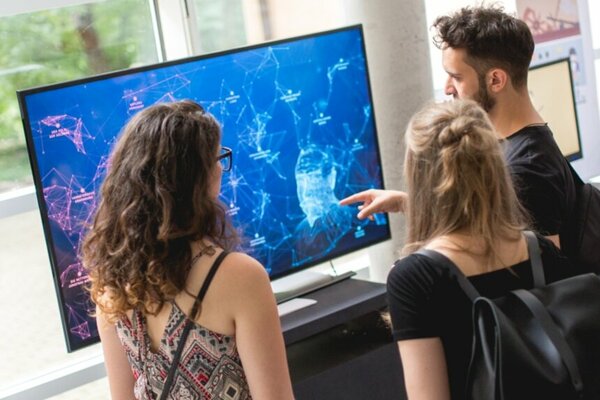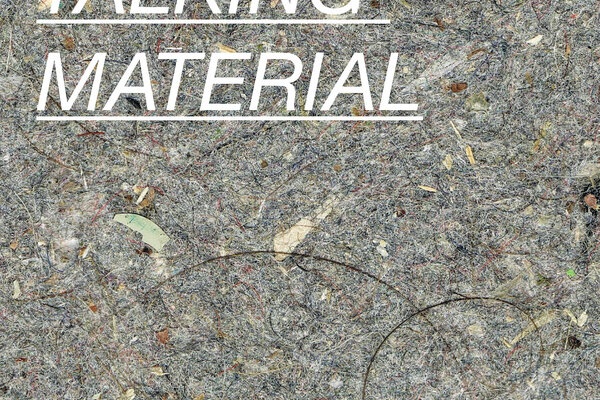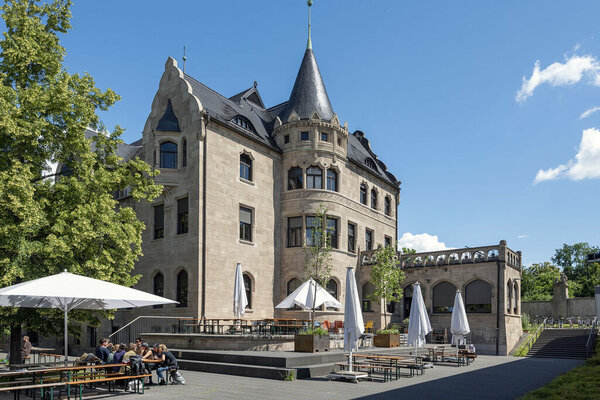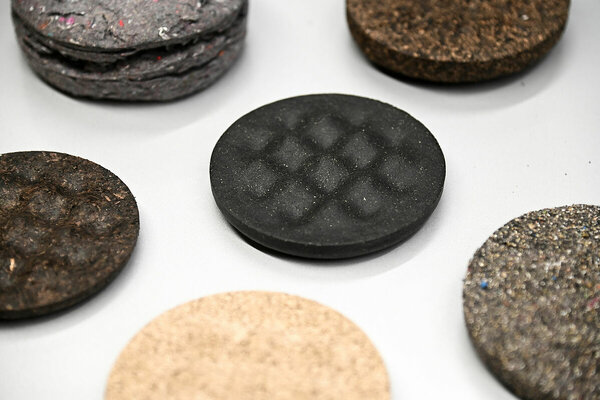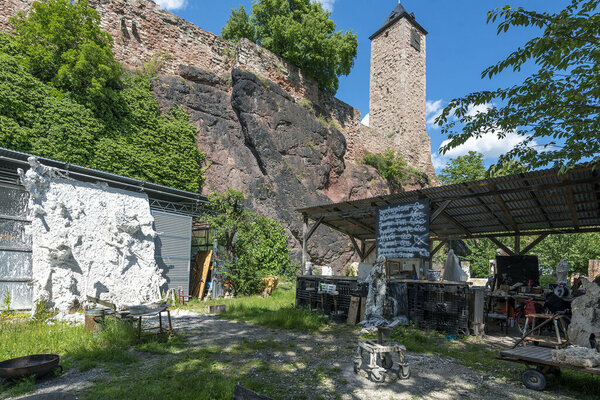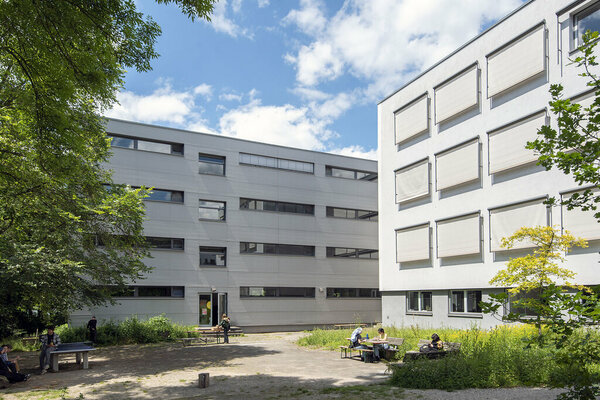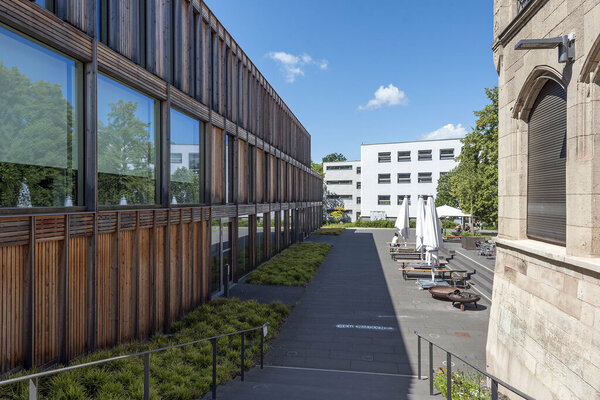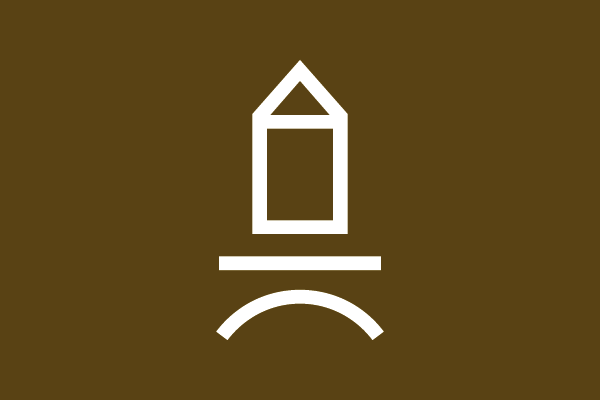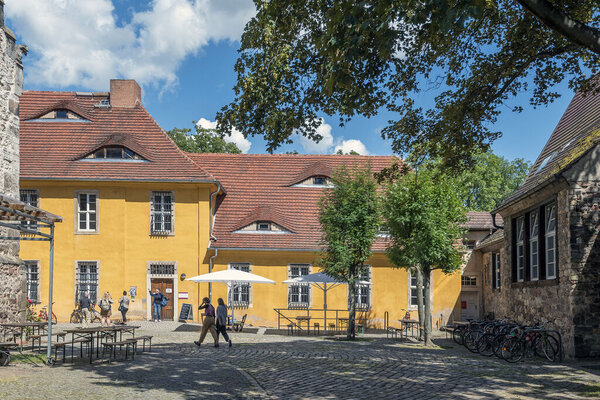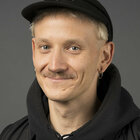Science fiction is simply a way to practice the future together.
adrienne maree brown, 2017
I was attracted to science fiction because it was so wide open. I was able to do anything and there were no walls to hem you in and there was no human condition that you were stopped from examining.
Octavia E. Butler, 2006
Im kommenden Wintersemester wollen wir uns mit »Science Fiction« als dystopischer und utopischer Erzählform beschäftigen: von zunehmend als verheerend empfundenen Visionen und Entwicklungen, in welchen die krisenschaffenden Ordnungen weiterhin aufrechterhalten werden, zu optimistischen potenziellen Szenarien der Zukunft, die ihren Fokus auf positive gesellschaftspolitische und ökologische Veränderungen richten. Durch das Teleskop der Science-Fiction können wir herrschende Normen und Ideologien überwinden, um imaginative Fragen zu stellen und Antworten auf drängende zeitgenössische Probleme zu finden. Die spekulative Fiktion bietet uns dafür eine Plattform, um darüber nachzudenken, wie mögliche Zukünfte und Gesellschaften gestaltet werden können.
»Ich schreibe Science-Fiction, und Science-Fiction erzählt nichts über die Zukunft.« behauptet Ursula K. Le Guin in der Vorbemerkung ihres Sci-Fi-Romans »Die linke Hand der Dunkelheit«. Ein zentraler Aspekt ist für uns die Untersuchung der Verschränkung von Gegenwart und Zukunft. Untersuchen wollen wir u.a. Ansätze und Aktionen, die schon jetzt zukünftige gesellschaftliche Zustände umsetzen, um eine mögliche Zukunft im aktuellen Handeln sichtbar und erlebbar zu machen. Dieser Auseinandersetzung folgt auch das von adrienne maree brown postulierte Konzept des »science fictional behaviour« – das Bewusstsein, dass unsere heutigen Handlungen und Überzeugungen die Zukunft und die nächsten Generationen formen. Dabei wird die Zukunft »A long time ago in a galaxy far, far away …« als Raum betrachtet, in dem wir gemeinsam diskutieren und gestalten können. Statt eines überholten Mensch-Welt-Verhältnisses suchen wir eine neue Art des In-der-Welt-Seins. Am Ende fragen wir uns aber auch, ob die Zukunft als Fortsetzung unserer Gegenwart überhaupt vorstellbar oder wünschenswert ist.
Im Rahmen unserer Auseinandersetzung mit Texten, Filmen, Musik und visuellen Medien sowie den Erzählmethoden der Science Fiction möchten wir untersuchen, wie diese Inhalte typografisch umgesetzt werden können. Dabei werden wir uns mit ganz konkreten Aufgaben und Hands-On Workshops dieser typografischen Auseinandersetzung annähern und handwerklich-technische Skills vermitteln. Zudem wollen wir ausloten, in welcher Form Schrift und Zeichensysteme zukünftige Kommunikationsformen übersetzen und darstellen können.
Gleichzeitig wollen wir die Relevanz des gedruckten Mediums sowie dem experimentellen Offset-Druck als Resonanzkörper der entwickelten Materialien zu futuristischen Technologien, alternativen Realitäten und sozialen Entwicklungen erforschen.
Unser Ziel ist dabei die Entwicklung und Gestaltung einer gemeinsamen Publikation, die unsere Untersuchungen zu Science-Fiction experimentell umsetzt. Die einzelnen Auseinandersetzungen und Beiträge der Studierenden sollen dabei im Zusammenspiel von Form, Farbe und Druckprozess unter Einsatz verschiedenster Materialien, Werkzeuge und Technologien experimentell in der Publikation zusammengefasst werden. Das Hinterfragen und Neuinterpretieren von Druckprozessen und -techniken, sowie des publizierten Objekts kann beispielsweise auf mehrdeutige oder offene Enden verweisen, die Unsicherheit und das Unbekannte in den Prozess integrieren, oder eigene Interpretationen und Ergänzungen zu den Druckprodukten formal-ästhetisch und konzeptionell erforschen.
Nicht zuletzt wollen wir neben dem Zeigen einer Vielfalt perspektivischer Zukünfte auch die komplexe Frage stellen, ob eine genaue Vorhersage überhaupt möglich und inwiefern diese in Text oder Bild visuell darstellbar und erfahrbar sein kann, sowie die Idee betonen, dass die Zukunft ein offenes, kollektives Konstrukt ist.
- Introworkshop: 7. bis 11. Oktober (Einführungswoche)
- jeden Montag, 14:30 bis 18/19 Uhr findet unser Schwerpunktprogramm statt
- jeden Dienstag, 10 bis 18 Uhr, und Mittwoch werden Konsultationen angeboten, mögliche Programmpunkte folgen
- Mittwochs liegt der Schwerpunkt aus Master Studierenden und Abschlüssen
- Projektwochen: 28. Oktober bis 1. November (3. Semesterwoche) und 13. bis 17. Januar (12. Semesterwoche), diese sind ganzwöchentlich für die Schwerpunkte vorgesehen
- Exkursionen, Gastvorträge und Workshops sind geplant
Bachelor Kommunikationsdesign
Mit den bisher erlernten Kompetenzen wird im Modul Komplexes Gestalten projektorientiert unter einem spezifischen Thema gearbeitet. Die Studierenden führen dabei eigenständig alle Schritte von der Recherche über die Konzeptentwicklung und den Entwurf bis hin zur Gestaltung und abschließenden Präsentation durch.
Master Visual Strategies and Stories
Im Master Modul Komplexes Gestalten wird im Rahmen einer projektorientierten Auseinandersetzung anhand eines künstlerisch-gestalterischen Entwicklungsvorhabens die individuelle fachliche Befähigung vertieft und im Reibungsfeld einer gesellschaftlichen/professionellen Anwendung diskutiert.
Unter Anwendung von Methoden künstlerischer Forschung sollen eigenständige künstlerisch-gestalterische Lösungsansatze entwickelt und inhaltliche, methodische und medienspezifische Fragestellungen vertieft werden.
...........................................
Do Androids Dream of Electric Books?
Between gloomy no-future scenarios and optimistic sci-fi utopias
Science fiction is simply a way to practice the future together.
adrienne maree brown, 2017
I was attracted to science fiction because it was so wide open. I was able to do anything and there were no walls to hem you in and there was no human condition that you were stopped from examining.
Octavia E. Butler, 2006
In the coming winter semester, we want to deal with “science fiction” as a dystopian and utopian narrative form: from visions and developments that are increasingly perceived as devastating, in which the crisis-creating orders continue to be maintained, to optimistic potential scenarios of the future that focus on positive social and ecological changes. Through the telescope of science fiction, we can bypass prevailing norms and ideologies to ask imaginative questions and find answers to pressing contemporary problems. Speculative fiction offers us a platform to reflect on the consequences of current developments and to imagine alternative paths of development. In other words, it allows us to think about how possible futures and societies can be shaped.
“I write science fiction, and science fiction tells us nothing about the future.” claims Ursula K. Le Guin in the foreword to her sci-fi novel “The Left Hand of Darkness”. A central aspect for us is the investigation of the entanglement of present and future. Among other things, we want to examine approaches and actions that are already implementing future social conditions in order to make a possible future visible and tangible in current actions. This examination also follows the concept of “science fictional behavior” postulated by adrienne maree brown - the awareness that our actions and beliefs today shape the future and the next generations. The future “A long time ago in a galaxy far, far away ...” is seen as a space in which we can discuss and shape together. Instead of an outdated relationship between man and the world, we are looking for a new way of being in the world. In the end, however, we also ask ourselves whether the future is even conceivable or desirable as a continuation of our present.
As part of our examination of texts, films and visual media as well as the narrative methods of science fiction, we would like to investigate how this content can be implemented typographically. In doing so, we will approach this typographic examination with very specific tasks. We also want to explore how type and sign systems can translate and represent future forms of communication.
At the same time, we also want to explore the relevance of the printed medium and experimental offset printing as a resonating body of the materials developed for futuristic technologies, alternative realities and social developments.
Our aim is to develop and design a joint publication that experimentally implements our investigations into science fiction. The individual contributions are to be experimentally combined in the publication through the interplay of form, color and printing process using a wide variety of materials, tools and technologies. Questioning and reinterpreting printing processes and techniques, as well as the published object, can, for example, point to ambiguous or open ends, integrate uncertainty and the unknown into the process, or explore one's own interpretations and additions to the printed products in a formal-aesthetic and conceptual way.
Last but not least, in addition to showing a variety of perspective futures, we also want to pose the complex question of whether an exact prediction is possible at all and to what extent this can be visually represented and experienced in text or image, as well as emphasizing the idea that the future is an open, collective construct.
Intro workshop: October 7 to 11 (introductory week)
every Monday, 14:30 to 18/19, our focus program takes place
every Tuesday, 10 a.m. to 6 p.m., and Wednesday consultations are offered, possible program items follow
Wednesdays focus on Master's students and degrees
Project weeks: October 28 to November 1 (3rd week of the semester) and January 13 to 17 (12th week of the semester), these are scheduled every week for the focus areas
Excursions, guest lectures and workshops are planned
Bachelor Communication Design
In the Complex Design module, students use the skills they have learned so far to work on a specific topic in a project-oriented manner. Students independently carry out all the steps from research, concept development and design through to design and final presentation.
Master Visual Strategies and Stories
In the Master's module Complex Design, individual professional skills are deepened and discussed in the field of friction of a social/professional application as part of a project-oriented examination based on an artistic/design development project.
Using methods of artistic research, independent artistic and creative solutions are developed and content-related, methodological and media-specific issues are explored in depth.




